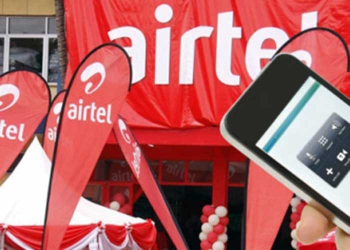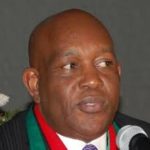An announcement by Airtel Uganda that it has paid $ 74.6m to secure a National Operator Licence for 20 years has triggered accusations of discriminatory market behaviour because MTN Uganda paid $100m for the same licence and less period.
In a statement released today by Airtel, it was revealed that Airtel Uganda paid $74.6m, including a VAT of $11.4m, to secure the National Telecom Operator Licence for 20 years.
“Airtel Uganda will retain all its current spectrum subject to the law and terms of assignment. The scope of the services will be the provision of basic telecommunication services, infrastructure services and value-added telecommunication services. In addition, Airtel Uganda commits to achieving coverage of 90 per cent of the geographical boundary of Uganda within five years effective date of licence, “reads the statement from Airtel Uganda.
Government has lost $100 million in the transaction meaning that MTN which paid $100 million for 12 years it means it pays $8.3 million a year while Airtel is going to be paying #3.3 million and this means that the transaction UCC entered with Airtel has caused a loss of $100 million to the country. Another critical issue is the VAT which was embedded within the transaction which it will paid back through a VAT maneuver $11 million loss.
However, industry experts have questioned why Airtel Uganda was given a similar licence to that of MTN yet it paid a lower fee and lesser period. MTN-Uganda paid that amount and was given 12 years unlike their competitors who have paid less and given more period of time.
It should be noted that Airtel Uganda had initially failed to raise the money for the licence citing disruptions caused by the #Covid-19 pandemic.
Sources familiar with the negotiations that went on between Airtel Uganda and Uganda Communications Commission (UCC) indicate that the company pleaded with the regulator that its revenues had been depleted by low client expenditure during the lockdown.
Airtel Uganda operates a Public Service Provider (PSP) and Public Infrastructure Provider (PIP) License, an arrangement that the company usually quotes to explain why it little amounts as compared to competitors MTN-Uganda.
Airtel’s competitors in the telecommunications industry have always complained that its cheap licence has given it the advantage to drive aggressive pricing which has put pressure on yields across the sector.
Airtel has enjoyed a market advantage over rivals because, while its operating licences are valued in millions of dollars, the Telco has been paying just $100,000 for its public service provider licence every five years.
That translates into an annual licence cost of just $20,000, compared with $5.8 million for its nearest competitor.
Airtel Uganda made Shs229.8 million profits in 2017, the same Telecom Company that has been paying just Shs370 million for its public service provider license every five years.
Recently, UCC introduced new changes and currently there Six new license categories have been introduced: National Telecom Operator (NTO) license; National Public Service Provider (NPSP) License, Regional Public Service Provider (RPSP), National Public Infrastructure Provider (NPIP) License, Regional Public Infrastructure Provider (RPIP) License and License to provide Communal Access.
Payment of National Operator fees has always been a bone of contention for telecom companies.







